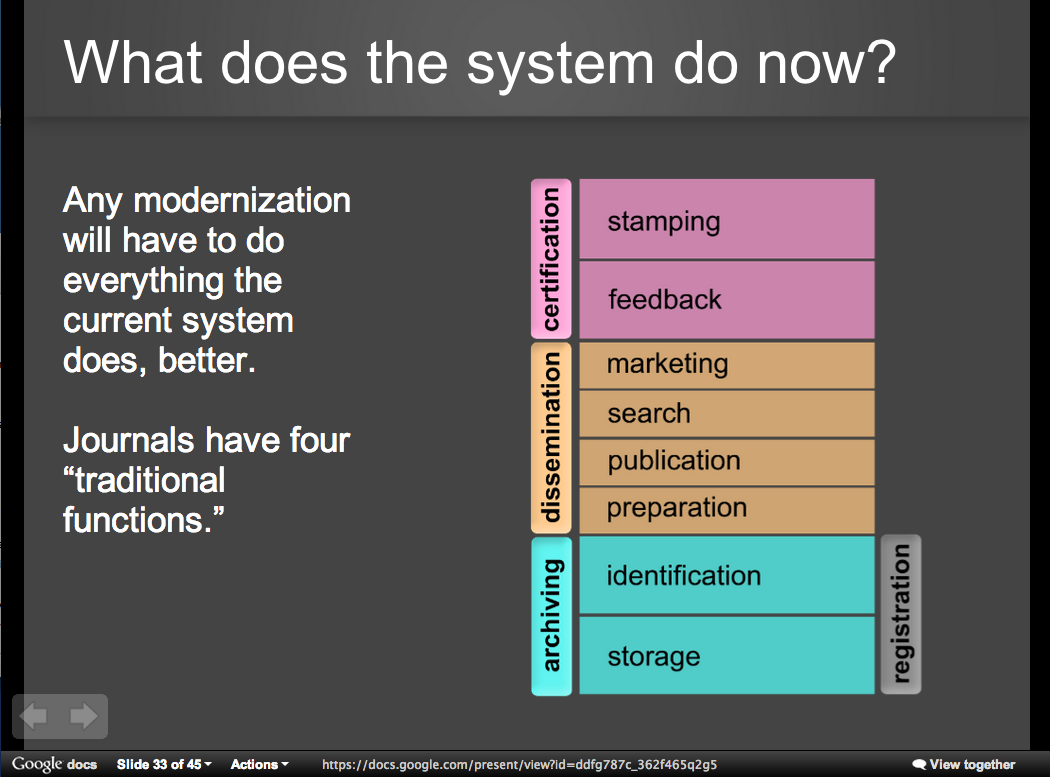Jason Priem has a wonderful slidedeck on how to smoothly transition from today’s practices in scientific communication to the future. Here is my reading of the argument given in Jason’s slides:
Communicating science is a central and essential part of doing science, and we have always used the best technology available.
Yet currently, there are several problems with journals, the primary form of scholarly communication.
Journal publication is
- Slow
- Closed
- Hard to innovate
- Restrictive format: function follows form
- Inconsistent quality control
and has
These problems are fixable, if we realize that journals serve four traditional functions:
- Registration
- Archiving
- Dissemination
- Certification
By decoupling these functions, into an a la carte publishing menu, we can fix the scholarly communication system. Decoupled scholarly outlets already exist. Jason mentions some outlets (I would say these mainly serve registration functions, maybe also dissemination ones):
- ArXiv
- Math Overflow
- SSRN
- Faculty of 1000 Research
- the blag-o-sphere
Jason doesn’t mention here — but we could add to this list — systems for data publishing, e-science workflow, and open notebook science; these may fulfil registration and archiving functions. Also, among existing archiving systems, we could add the journal archiving functions of LOCKSS is the main player I’m familiar with.
To help with the certification functions, we have altmetrics tools like Impact Story (Jason’s Sloan Founded project with Heather Piwowar).
Jason’s argument well worth reading in full; it’s a well-articulated argument for decoupling journal functions, with some detailed descriptions of altmetrics. The core argument is very solid, and of wide interest: Unlike previous articulations for “pre-publication peer review”, this argument will make sense to everyone who believes in big data, I think. There are other formats: video of the talk ((Thanks to Siegfriend Handschuh, who suggested the video of Jason giving this talk at Purdue.)) and a draft article called “Decoupling the scholarly journal” ((by Jason Priem and Bradley M. Hemminger, under review for the Frontiers in Computational Neuroscience special issue “Beyond open access: visions for open evaluation of scientific papers by post-publication peer review”)).
